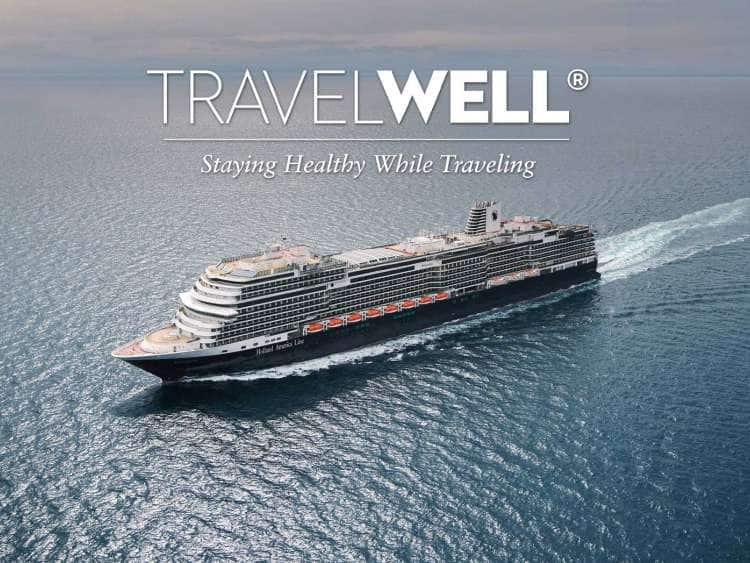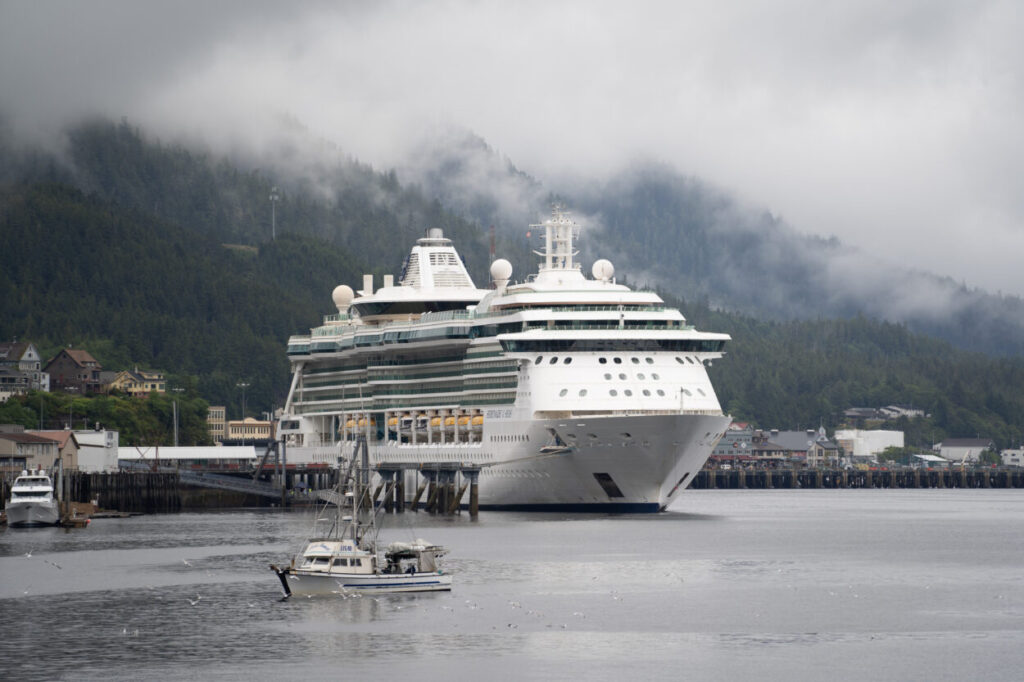Planning a cruise to Alaska? Before you embark on this breathtaking adventure, you might be wondering whether vaccinations are necessary. In this article, we will explore whether you need vaccinations to travel on a cruise to Alaska. Discover the essential information you need to ensure a safe and enjoyable journey through the stunning landscapes of the Last Frontier. So, let’s set sail and uncover the truth about vaccinations and your Alaskan cruise!

Overview of Cruise Travel to Alaska
Cruise travel to Alaska is a popular and breathtaking experience that allows you to explore the majestic beauty of this incredible region. With its stunning glaciers, towering mountains, and abundant wildlife, Alaska offers a unique and unforgettable adventure for cruise travelers. Whether you’re a nature lover, an outdoor enthusiast, or simply seeking a relaxing getaway, an Alaskan cruise has something to offer everyone. In this article, we will explore the popular destinations in Alaska, the benefits of cruising to Alaska, and the importance of vaccination for cruise travel.
Popular Destinations in Alaska
Alaska is home to several must-visit destinations that will leave you in awe of its natural wonders. One of the most iconic stops on an Alaskan cruise is Glacier Bay National Park, where you can witness the awe-inspiring sight of massive glaciers calving into the sea. Another popular destination is the charming town of Skagway, known for its rich gold rush history and scenic beauty. Juneau, the capital of Alaska, offers a unique blend of city life and natural wonders, with opportunities to explore stunning waterfalls and go whale watching. Other notable destinations include Ketchikan, known for its totem poles, and Sitka, a picturesque town with a rich Russian heritage.

Benefits of Cruising to Alaska
Cruising to Alaska offers numerous benefits that make it an ideal choice for travelers. Firstly, cruising provides a convenient way to explore the vast Alaskan wilderness, as you can visit multiple destinations without the hassle of arranging separate accommodations and transportation. Additionally, cruise ships offer a wide range of amenities and activities on board, ensuring that you have a comfortable and enjoyable journey. From luxurious accommodations and delectable dining options to onboard entertainment and enriching activities, cruise ships strive to provide a memorable experience for every traveler. Moreover, the stunning views from the ship’s deck as you sail through Alaska’s pristine waters are truly unparalleled.
Importance of Vaccination for Cruise Travel
Ensuring that you are up to date with your vaccinations is crucial when embarking on a cruise to Alaska. Vaccinations help protect you from various diseases and reduce the risk of spreading illnesses to other passengers and crew members. Additionally, Alaska’s unique environment may expose you to certain infectious diseases that are not commonly found in other parts of the world. Therefore, it is important to consult with a travel health professional and follow their recommendations for necessary vaccinations.
Requirements for Cruise Travel to Alaska
Before embarking on an Alaskan cruise, it is essential to familiarize yourself with the requirements set forth by cruise lines and health authorities. These requirements typically involve the following aspects:
Alaska Cruise Itinerary
Reviewing the cruise itinerary is important to ensure that you have a clear understanding of the destinations you will be visiting. Different Alaskan ports may have specific health risks and vaccination requirements, so it’s vital to gather this information before your trip.
Cruise Line Policies
Each cruise line has its own policies regarding vaccinations and health requirements. It is crucial to carefully read and comply with these policies to ensure a smooth and hassle-free journey. Some cruise lines may have specific vaccination requirements, while others may strongly recommend certain vaccinations.
Passenger Medical Questionnaire
Cruise lines often require passengers to complete a medical questionnaire before embarking on their voyage. This questionnaire helps assess any potential health risks and ensures that necessary precautions are taken. It is important to answer all the questions honestly and accurately to ensure your safety and the safety of others on board.
Recommended Vaccinations for Alaska Travel
To protect yourself and others during your Alaskan cruise, there are several vaccinations that are strongly recommended. These include:
Routine Vaccinations
Ensuring that your routine vaccinations, such as measles, mumps, rubella, tetanus, and pertussis, are up to date is essential before embarking on any travel adventure, including an Alaskan cruise.
Hepatitis A and B
Hepatitis A and B are viral infections that can be spread through contaminated food, water, or close contact with an infected person. Since these diseases can be encountered during your trip, the Centers for Disease Control and Prevention (CDC) strongly recommend receiving vaccinations for both Hepatitis A and B before traveling to Alaska.
Influenza (Flu)
Influenza, commonly known as the flu, is a highly contagious respiratory illness. Since cruise ships can be a breeding ground for viral infections, it is advisable to receive an annual flu vaccine before your Alaskan cruise to minimize the risk of contracting or spreading the flu.
Measles, Mumps, and Rubella (MMR)
The MMR vaccine protects against measles, mumps, and rubella, which are highly contagious diseases that can cause serious complications. Ensuring that you have received the MMR vaccine is essential, especially if you haven’t had these diseases or have not been vaccinated before.
Tetanus, Diphtheria, and Pertussis (TDAP)
The TDAP vaccine provides protection against tetanus, diphtheria, and pertussis (whooping cough). These diseases can be contracted through close contact with infected individuals and can lead to severe illness. It is important to make sure you are up to date with the TDAP vaccine before your Alaskan cruise.
Varicella (Chickenpox)
Varicella, commonly known as chickenpox, is a highly contagious viral infection. If you have not had chickenpox or have not been vaccinated against it, it is advisable to get the varicella vaccine before your cruise, as outbreaks can occur even in adult populations.
Meningococcal Disease
Meningococcal disease is a bacterial infection that can cause meningitis and bloodstream infections. Depending on your age, destination, and other risk factors, your healthcare provider may recommend a meningococcal vaccine before your Alaskan cruise.
Pneumococcal Disease
Pneumococcal disease is a bacterial infection that can cause pneumonia, bloodstream infections, and meningitis. Depending on your age and other risk factors, your healthcare provider may recommend a pneumococcal vaccine to protect against this disease.
Polio
Although polio has been largely eradicated worldwide, certain countries and regions still carry a risk of polio transmission. It is advisable to consult with a travel health professional to determine if the polio vaccine is necessary for your Alaskan cruise.
Rabies
Rabies is a viral disease transmitted through the bites of infected animals. While the risk of encountering rabies in Alaska is low, activities such as wildlife encounters or remote excursions may carry a higher risk. Discussing the need for a rabies vaccine with a travel health professional is recommended in these cases.

Alaska-Specific Vaccination Recommendations
In addition to the routine and recommended vaccinations, certain vaccines are specifically advised for travelers visiting Alaska due to unique risks associated with the region. These include:
Hepatitis A
Hepatitis A is prevalent in Alaska, and the risk of exposure can be increased during activities such as seafood consumption or travel to rural areas. It is strongly recommended to receive the hepatitis A vaccine to protect against this viral infection.
Hepatitis B
Hepatitis B is also prevalent in Alaska, and the risk of exposure can be higher in certain populations or through activities such as healthcare procedures or sexual contact. It is advisable to receive the hepatitis B vaccine before your Alaskan cruise to minimize the risk of contracting this disease.
Influenza
Influenza is a significant concern in Alaska, particularly during the winter months. Since cruise travel to Alaska often takes place during the flu season, it is essential to receive the influenza vaccine to protect yourself and others from this contagious illness.
Tetanus, Diphtheria, Pertussis
Ensuring that you are up to date with the TDAP vaccine is essential for protection against tetanus, diphtheria, and pertussis. These diseases may pose a higher risk in remote areas of Alaska and during outdoor activities such as hiking or camping.
Varicella
As mentioned earlier, varicella (chickenpox) outbreaks can occur even in adults. It is strongly recommended to receive the varicella vaccine if you haven’t had chickenpox or have not been vaccinated against it.
Meningococcal Disease
Depending on your specific travel itinerary and activities, your healthcare provider may recommend a meningococcal vaccine for protection against this bacterial infection.
Pneumococcal Disease
The pneumococcal vaccine is advised for certain populations, including adults with chronic medical conditions or those over the age of 65. It is important to discuss your individual risk factors with a travel health professional.
Polio
Although the risk of polio transmission in Alaska is low, it is advisable to consult with a healthcare provider to determine if the polio vaccine is necessary based on your specific travel plans and risk factors.
Rabies
While encounters with rabid animals are rare in Alaska, it is advisable to take precautions in remote areas or if you plan to engage in activities that may increase the risk of exposure. Discussing the need for a rabies vaccine with a travel health professional is recommended in these cases.
Additional Considerations for Remote Areas
If you plan to explore remote areas in Alaska or engage in outdoor activities such as camping or hiking, it is important to be aware of the limited access to medical facilities and the potential challenges in obtaining medical care. It is advisable to carry a well-stocked medical kit and be prepared for potential emergencies or unexpected healthcare needs.
Vaccination Requirements for Shore Excursions
Shore excursions are an exciting part of any cruise, allowing you to explore the beauty and culture of each destination. However, it’s essential to consider the vaccination requirements for specific excursion destinations to ensure your safety. Factors to consider include:
Excursion Destinations and Risks
Different shore excursion destinations in Alaska may pose varying health risks. For example, if you plan to visit remote areas or engage in activities like wildlife encounters or hiking, you may face different vaccination requirements compared to exploring a city or taking a scenic tour. It is important to research and understand the potential health risks associated with each excursion.
Cruise Line and Excursion Policies
Cruise lines and excursion providers may have specific policies regarding vaccination requirements for certain activities. It is advisable to review these policies before booking your excursions and ensure that you comply with any necessary vaccinations or health precautions.
Preventing Infections during Excursions
In addition to vaccinations, there are several precautions you can take to prevent infections during excursions. These include practicing good hand hygiene, avoiding close contact with sick individuals, using insect repellent to prevent insect bites, and following food and water safety practices.

Consulting with a Travel Health Professional
Seeking advice from a travel health professional is an important step in ensuring your health and safety during your Alaskan cruise. They can provide valuable guidance based on your specific health status, vaccination history, travel plans, and individual risk factors. Some key considerations when consulting with a travel health professional include:
Importance of Seeking Professional Advice
A travel health professional is equipped with the latest information and expertise to assess your individual needs and provide personalized recommendations. They can take into account any pre-existing health conditions, allergies, or medications you may be taking and provide guidance on the most appropriate vaccinations and preventive measures.
Creating a Personalized Vaccination Plan
Based on your consultation, the travel health professional can create a personalized vaccination plan tailored to your specific requirements. They will consider the destination, activities planned, and any potential health risks to ensure you are adequately protected.
Timeline for Vaccinations
Certain vaccinations require multiple doses or take time to build immunity. It is important to consult with a travel health professional well in advance of your cruise to allow for the appropriate timing of vaccinations. Some vaccines may also require a specific waiting period between doses.
Cost and Insurance Coverage
Discussing the cost of vaccinations with a travel health professional is essential, as some vaccines may not be covered by insurance. It is important to budget accordingly and inquire about any potential reimbursement options through your insurance provider.
Other Health Considerations for Cruise Travelers
In addition to vaccinations, there are other health considerations that cruise travelers should keep in mind to ensure a safe and enjoyable journey. These include:
Traveler’s Diarrhea
Traveler’s diarrhea is a common ailment that can put a damper on your cruise experience. Ensuring good food and water hygiene, as well as practicing safe eating and drinking habits, can help minimize the risk of developing traveler’s diarrhea. It is also advisable to bring over-the-counter medications for symptomatic relief.
Motion Sickness
Motion sickness is a concern for some cruise travelers, especially when sailing through rough waters or during turbulent weather conditions. Precautions such as choosing a cabin in the middle of the ship, using motion sickness medications or patches, and focusing on the horizon can help alleviate symptoms.
Sun Protection
Alaska may have long daylight hours, and the sun’s rays can be intense, especially during the summer months. Applying sunscreen with a high SPF, wearing protective clothing, and using sunglasses and hats to shield yourself from the sun are essential precautions for preventing sunburn and skin damage.
Insect Bite Prevention
While Alaska is not known for its mosquito population, some rural areas may have mosquitoes or other biting insects. To prevent insect bites and minimize the risk of potential infections, it is advisable to use insect repellent, wear long sleeves and pants, and avoid outdoor activities during peak mosquito times.
Packing a Medical Kit
Packing a well-equipped medical kit is a wise precaution for any traveler. It should include essentials such as over-the-counter medications for common ailments, band-aids, antiseptic wipes, and any prescription medications you may require. It is also helpful to carry copies of your vaccination records and travel insurance information.
Preventing Illness on a Cruise Ship
Maintaining good hygiene practices while on a cruise ship is crucial to prevent the spread of illnesses among passengers and crew members. Some key precautions to prevent illness include:
Hand Hygiene
Washing your hands regularly with soap and water for at least 20 seconds is one of the most effective ways to prevent the spread of germs. Use hand sanitizers when soap and water are not available, especially before meals or after touching surfaces in public areas.
Respiratory Etiquette
Covering your mouth and nose with a tissue or your elbow when coughing or sneezing can help prevent the spread of respiratory illnesses. Dispose of used tissues properly and wash your hands afterward.
Food and Water Safety
Practicing safe food and water hygiene is essential to prevent foodborne illnesses. Avoid consuming undercooked or raw food, drink only bottled or treated water, and be cautious of consuming foods from unregulated or street vendors.
Avoiding Close Contact with Sick Individuals
If you notice someone exhibiting symptoms of illness, such as coughing, sneezing, or showing signs of gastrointestinal distress, it is advisable to maintain a safe distance and avoid close contact. This can help minimize the risk of contracting and spreading infections.
COVID-19 Vaccination and Travel to Alaska
Given the ongoing COVID-19 pandemic, it is important to be aware of the current travel restrictions and guidelines related to COVID-19 for cruise travel to Alaska. As of [date], COVID-19 vaccination may be a requirement for embarking on an Alaskan cruise. The COVID-19 vaccination offers protection against severe illness and reduces the risk of transmission, making it a vital tool in controlling the spread of the virus.
Importance of COVID-19 Vaccination
COVID-19 vaccination not only protects individuals from severe illness but also contributes to the overall safety of the cruise ship environment. With the highly contagious nature of the virus, ensuring a high vaccination rate among passengers and crew members can significantly reduce the risk of outbreaks and provide a safer experience for all on board.
Current Travel Restrictions and Guidelines
It is important to stay up to date with the current travel restrictions and guidelines set forth by health authorities and cruise lines regarding COVID-19. These restrictions may include pre-departure testing requirements, proof of vaccination, and adherence to specific health protocols while on board.
Cruise Line COVID-19 Protocols
Cruise lines have implemented comprehensive COVID-19 protocols to ensure the safety of passengers and crew members. These protocols may include enhanced cleaning and sanitation procedures, mandatory mask-wearing in certain areas, physical distancing measures, and modified dining and entertainment options. It is important to familiarize yourself with your chosen cruise line’s specific protocols to ensure compliance and a smooth journey.
Conclusion
Embarking on a cruise to Alaska is an extraordinary adventure that allows you to immerse yourself in the beauty of this majestic region. To ensure a safe and enjoyable trip, it is crucial to prioritize your health and vaccination needs. Consult with a travel health professional to determine the necessary vaccinations for your Alaskan cruise and make sure you are up to date with routine vaccines. Additionally, take preventive measures such as practicing good hygiene, protecting yourself from the sun and insect bites, and following cruise line and excursion policies. By taking these precautions, you can have peace of mind as you witness the awe-inspiring landscapes and wildlife that Alaska has to offer.
Hi, I’m Mike, the author of Ocean Bliss Journeys. Thank you for visiting 🙂

